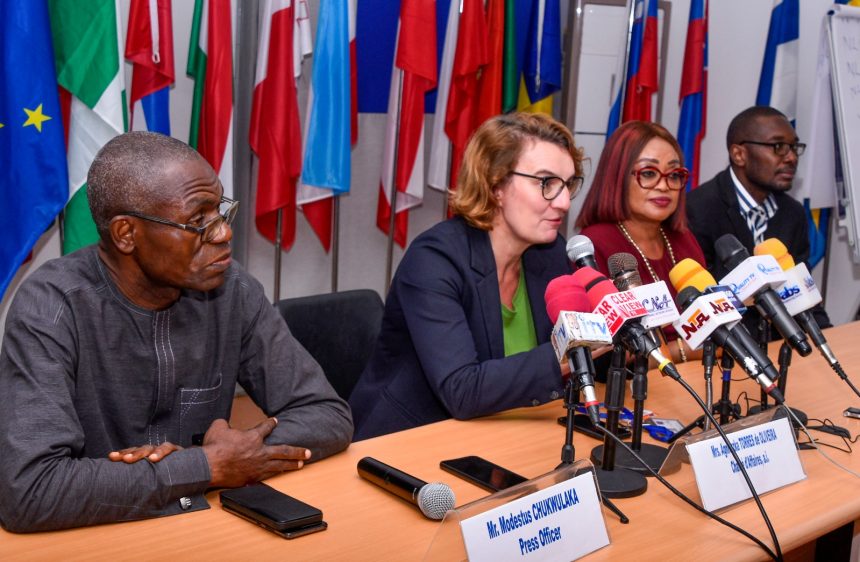By Linus Aleke, Abuja
The EU Delegation to Nigeria and ECOWAS, has said that journalists, more than any other group, cannot afford to ignore the possibilities that the new media offers, as well as the threat it poses if not properly managed and harnessed, adding that AI and the social media are assuming more and more dominant role in the information space.
Charge d ’Affairs, EU Delegation to Nigeria, Ms Agnieszka de Torres Oliveira, has said this, during the official opening of the capacity building on Artificial Intelligence and the Social Media for members of the Diplomatic Correspondents Association of Nigeria (DICAN), at the EU Secretariat in Abuja.
She said that the capacity building for diplomatic correspondents is aimed at equipping the trainees with useful, hands-on skills on how to maximise the immense potentials of the new media in their day- to-day duties of providing their audiences with timely, and accurate information.
“In a digital age, in which technology is increasingly interfering with public information flow, the need to integrate the many positive features of the new media into the traditional media practice is becoming clearer every day.
“The media is an enabler of free and open debates. The social media has further expanded the frontiers of free speech by amplifying the voice of citizenry more than ever before. In particular, the social media enables citizen engagement, providing them with a platform to express their views and stimulate important debates about issues that affect them,” she said.
Charge d ’Affairs, also noted that all these resonate with the values of the European Union, which is the leading promoter of democracy and human rights within and outside its borders, stressing that EU promotes freedom of expression, both online and offline, because it is the bedrock of democracy in practice.
According to her, training journalists to be more effective in the great work they do will also strengthen democracy and make the society better.
She said: “Today’s training is part of EU’s efforts to empower those who defend democracy and rights, including free speech, to be more effective in the discharge of their responsibility to their societies. On the reverse side, what can be used can also be abused as experience has repeatedly proved.
“Earlier this year, the European Parliament adopted the AI Act, which is considered to be the world’s first comprehensive horizontal legal framework for AI. The law provides for EU-wide rules on transparency, human oversight and accountability.
At no time has fact-checking become as important in information management as it today, given the manipulation, misinformation and outright disinformation made possible by AI and the social media”.
She said that understanding how these new media work will be the first step in stemming these harmful effects and safeguarding the integrity of the information environment.












